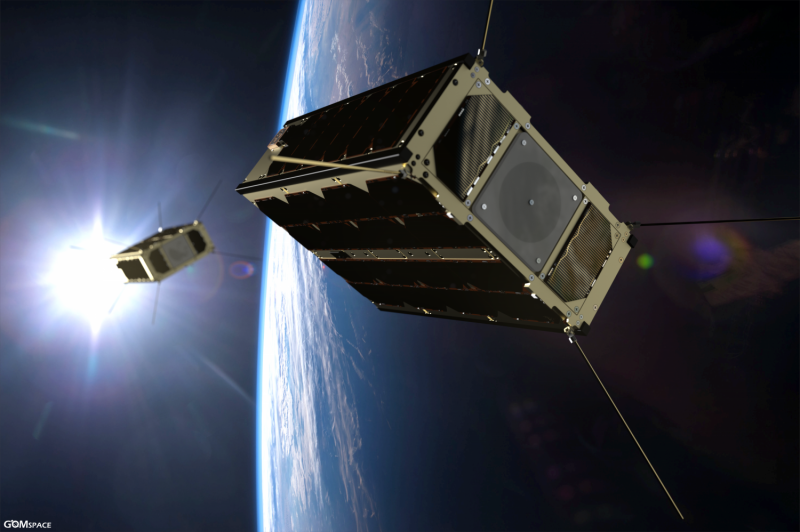Credit: GomSpace
ESA has signed a contract for its biggest small nanosatellite yet: GomX-4B will be a '6-unit' CubeSat, intended to demonstrate miniaturised technologies, preparing the way for future operational nanosatellite constellations.
GomX-4B is double the size of ESA's first technology CubeSat, GomX-3, which was released from the International Space Station last year.
"ESA regards CubeSats, based on standardised 10 cm units, as very promising for early testing of new technologies in space at a low cost," explains Roger Walker, heading ESA's technology CubeSat initiative.
"GomX-4B's increased size will accommodate more technology payloads, and enables a higher level of performance."
The contract with Danish CubeSat specialist GomSpace is supported through the In-Orbit Demonstration element of ESA's General Support Technology Programme, focused on readying new products for space and the marketplace.
Aiming for flight in late 2017, GomX-4B will be launched and flown together with GomX-4A, designed by GomSpace for the Danish Ministry of Defence under a separate contract.
The two CubeSats will stay linked through a new version of the software-defined radio system demonstrated on GomX-3, while their relative positions along their shared orbit is controlled up to a maximum 4500 km.
Such intersatellite links will allow future CubeSat constellations to relay data quickly to users on the ground. The same radio system will also be used for rapid payload data downloads to Earth.
Nanospace in Sweden are contributing the highly miniaturised cold-gas thrusters for controlling the orbit, allowing future CubeSat-based constellations to be deployed quickly after launch.
Additional technology payloads include a compact hyperspectral imager called HyperScout, developed by Cosine Research in the Netherlands; a miniaturised startracker from Innovative Solutions In Space, also in the Netherlands; an inhouse ESA experiment to test components for radiation hardness; and an ADS-B antenna for aircraft tracking, developed from the GomSpace system tested on GomX-3.
Provided by European Space Agency
























